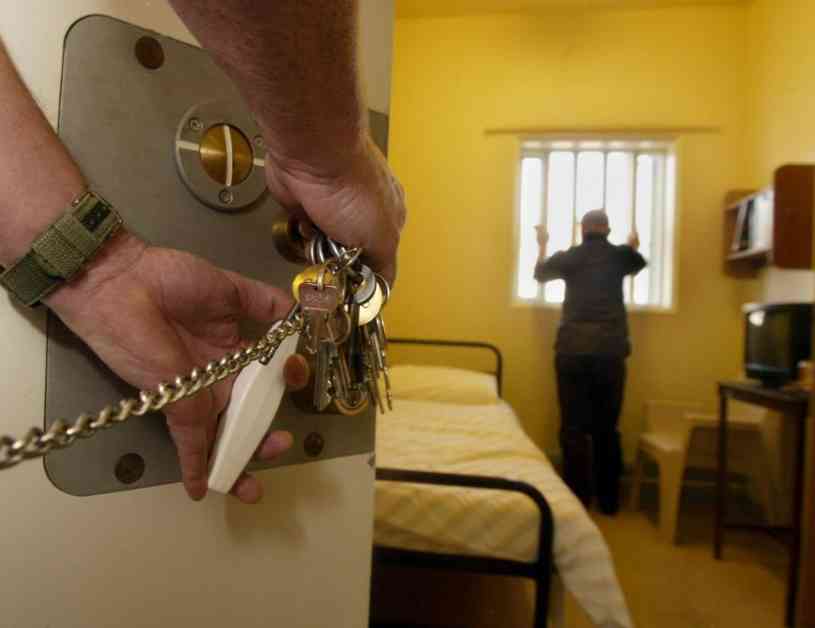The Chief Inspector of Prisons for Scotland, Wendy Sinclair-Gieben, has called on the Scottish Prison Service to end routine body-searching of female inmates following an inspection of the new £85 million “therapeutic” jail. The inspection included HMP & YOI Stirling, a female prison designed to help women reintegrate, as well as two community custody units in Glasgow and Dundee.
Concerns Raised at HMP & YOI Stirling
HMP & YOI Stirling, which opened in 2023, cost £85 million and is meant to accommodate women remanded in custody before being transferred elsewhere. However, the inspection raised concerns about whether prisoners are fully benefiting from the resources due to the constant turnover of the remand population. Security risks were also noted at the prison, which has replaced the old Cornton Vale facility and does not have bars on the doors or windows.
The new prison is part of the Scottish Prison Service’s strategy for women in custody, aimed at providing a therapeutic environment for rehabilitation. Chief Inspector Sinclair-Gieben praised the “therapeutic environment” of HMP & YOI Stirling, stating that it was “highly impressive” and aligned with the trauma-informed ethos outlined in the strategy. Despite this, concerns were raised about late arriving inmates being kept under observation by staff without clinical training until they could be assessed by a health worker the following day.
Community Custody Units
In addition to HMP & YOI Stirling, two community custody units – Bella in Dundee and Lilias in Glasgow – were inspected. These units are designed to teach “real life” skills for independent living to women nearing the end of their sentence. The units were praised for their “modern, relaxed ambience” where women felt “safe, respected and supported by their personal officers.”
However, concerns were raised about body-searching practices at the custody units, which were deemed to be potentially retraumatizing for the inmates. The report highlighted the need for greater autonomy and responsibility among the women in the units, reducing their dependency on staff. Inconsistency of approach and security and risk protocols were also identified as areas for improvement in order to support successful reintegration into the community.
Call to End Gender-Based Body Searches
Chief Inspector Sinclair-Gieben has been advocating for an end to “degrading” body searches in Scottish prisons for several years. In her latest report, she reiterated her call for an end to “random searching” of prisoners, labeling it as “disproportionate” and “undermining” the trauma-informed approach. While she acknowledged that there may be a legitimate role for body searches based on intelligence or suspicion, she emphasized that routine random searching is not justifiable.
The report recommended that the Scottish Prison Service consider whether the current practice of using HMP & YOI Stirling as an assessment center for new admissions, who are often transferred to older prisons with poorer accommodation, is the best use of the therapeutic resources available. Sinclair-Gieben emphasized the need for a more consistent and supportive approach to help women fully benefit from the therapeutic environment provided by the new facilities.
In response to the recommendations, a Scottish Prison Service spokesperson emphasized the importance of prioritizing the rights and well-being of those in their care, while also maintaining security. Body scanner machines have been installed in 11 establishments, and body searches are conducted only when necessary to ensure safety. The spokesperson highlighted the progress made in managing women in custody, including the reduction in the use of restraint and additional support for new admissions.
Chief Inspector Sinclair-Gieben’s report commended Scotland for leading the way in managing women in custody and identified areas of good practice, such as the reduction in the use of restraint and additional support for new admissions. The report also acknowledged the significant investment made by the Scottish Government to support the rehabilitation of those in custody, reduce the risk of reoffending, and build safer communities.
In conclusion, the calls to end gender-based body searches in women’s therapeutic jails highlight the importance of treating inmates with dignity and respect while prioritizing their rehabilitation and reintegration into society. By addressing the concerns raised by Chief Inspector Sinclair-Gieben and implementing changes to ensure a trauma-informed approach, the Scottish Prison Service can continue to strive towards excellence in managing women in custody.
































